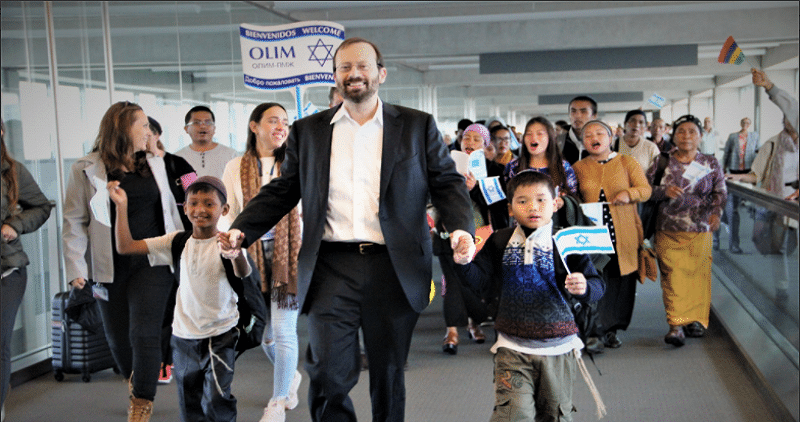As many as 162 members of what is called a “lost tribe” of Israel migrated to the country from Manipur this week. The Bnei Menashe group is believed to be one of the 10 lost tribes which was exiled 2,700 years ago from the northern Kingdom of Israel.
Approximately 10,000 members of the Bnei Menashe group are alive, of which 3,000 live in Israel, while the rest reside in India. They speak Tibeto-Burman languages and are made up of Mizo, Kuki, and Chin people — all three tribes live in Myanmar and India.
The 162 people had been separated from their families for 10 years as the latter had moved to Israel earlier, Jerusalem Post reported. Their arrival at Israel’s Ben-Gurion International Airport in two groups, on Nov.14 and Nov. 16, was celebrated by the community members. The process of returning home to Israel from distant lands is known as Aliyah.
The final group of #BneiMenashe of this week’s #Aliyah has arrived. If you weren’t moved to tears by their excitement, joy, and spontaneous singing, then seeing this grandmother lifted in her wheelchair to allow her the opportunity to kiss the mezuzah should do it.
Mazal tov! pic.twitter.com/I58RpkpnM9— Shavei Israel (@shaveiisrael) November 16, 2017
The group was able to emigrate through the help of a conservative organization called Shavei Israel, which claims on their website that it’s “the only Jewish organization today that is actively reaching out to ‘lost Jews’ in an effort to facilitate their return [to Israel].”
The group was reportedly recognized as Jews only in 2005, when the then-Sephardi Chief Rabbi of Israel Shlomo Amar officially recognized them. Around 1,700 of them were able to move to Israel, until the government stopped giving them visas. The process restarted, and a group of Bnei Menashe went to Israel early this year.
Among the early immigrants, many converted to Judaism only after moving to Israel. According to an American Jewish publication called Forward, the group not only faces racism, but have been unable to assimilate with the modern Israeli culture. DNA testing is said to have revealed that there is no Middle Eastern ancestry in the community and they have been housed in West Bank, which is believed to be illegally occupied by Israel.
Many of the young adults are at risk since they live unsupervised while their parents work low-wage jobs. The young men have been in trouble with the law for petty crimes while the girls, the parents worry, are getting influenced by American culture, according to Yoni Nachum, the coordinator of Bnei Menashe programs for the local council. Living on the outskirts have also made it difficult for them to adapt to the modern culture. “What is different here is that they have been neglected for some 20 years, and we are only now starting to see the implications,” Nachum said, according to the Forward publication.
At least 73 per cent of the group’s youth are considered at risk, according to Malachi Levinger, the head of the local council of a city in the West Bank called Kiryat Arba, the publication reported.
